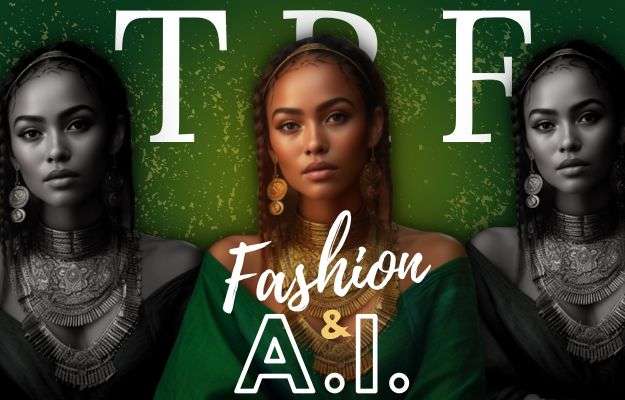Fashion and A.I. (Artificial Intelligence): Defining the Changes AI Will Bring in the Upcoming 10 Years
The fashion industry has undergone a significant transformation over the last few years, with technology playing a crucial role in driving these changes.
One of the most exciting developments in the fashion industry is the intersection of Fashion and AI.
AI has the potential to revolutionize the fashion industry, from design to production, marketing, and sales. In this essay, we will discuss in detail the changes AI will bring in the upcoming ten years in the fashion industry.

Personalized Shopping Experience
One of the most significant changes AI will bring to the fashion industry is providing customers with a personalized shopping experience.
With the help of AI, fashion companies will be able to analyze customers’ purchase histories and preferences to recommend products that are tailored to their tastes.
AI algorithms can also predict the styles and sizes that customers are likely to buy, leading to increased customer satisfaction and reduced return rates.

Trend Forecasting
AI will also play a significant role in trend forecasting in the fashion industry.
AI algorithms can analyze social media trends, search engine data, and purchase data to predict upcoming fashion trends accurately. This technology will help fashion companies stay ahead of the curve and produce products that align with customers’ preferences.
Sustainable Production
Sustainability is becoming an increasingly important issue in the fashion industry. By using AI to optimize production processes and reduce waste, fashion companies can reduce their environmental impact.
AI algorithms can also help fashion companies choose the most sustainable product materials.
Virtual Try-Ons
AI-powered virtual try-on technology will become more widespread, allowing customers to see how a product looks on them without physically trying it on.
This technology will help reduce returns and increase customer satisfaction. Using augmented reality and computer vision, virtual try-ons can create a realistic and engaging customer experience.
Faster Design Process
AI algorithms can help fashion designers speed up the design process by automating tasks such as sketching, pattern-making, and color selection. By using AI to automate these processes, designers can focus on more creative tasks, leading to faster turnaround times and more innovative designs.
Read More – Fashion 101: Discover the Fashion You Never Knew Existed
Improved Supply Chain Management
AI-powered supply chain management systems will help fashion companies streamline their operations, reducing costs and improving efficiency. By using AI to analyze data from different stages of the supply chain, fashion companies can identify bottlenecks and optimize processes.
Influencer Marketing
Influencer marketing has become an essential part of the fashion industry’s marketing strategy. AI will help fashion companies identify the most influential social media users in their target demographic and partner with them to promote their products. By using AI to analyze social media data, fashion companies can identify the most effective influencers to partner with and optimize their marketing campaigns.
Read Furthur: THE WAVE OF FASHION RUNWAY: THE 1ST AI FASHION WEEK | FASHIONWEEK.AI
Customer Service
AI-powered chatbots will become more common, providing customers with 24/7 support and improving response times. By using natural language processing and machine learning, chatbots can provide personalized support to customers, leading to increased customer satisfaction.
Product Recommendation
Fashion and A.I. will also improve product recommendations on fashion e-commerce sites, helping customers find products they are more likely to buy.
By using data from customers’ browsing and purchase history, AI algorithms can predict the products that customers are most likely to be interested in and recommend them to the customer.
Hyper-Personalization
Fashion and A.I. will allow fashion companies to provide hyper-personalized products and services to their customers. With the help of AI, fashion companies can create custom-made garments that perfectly fit each customer’s unique body type and preferences.
This technology will lead to a more individualized and customer-centric approach to fashion.
Conclusion
In conclusion, the intersection of fashion and A.I. is already bringing about several changes in the fashion industry, and these changes will only continue to evolve and grow in the upcoming ten years.
From personalized shopping experiences to hyper-personalized products and services, AI has the potential to revolutionize the fashion industry in ways we could never have imagined.
Fashion companies that embrace AI and its capabilities will be better equipped to meet the changing needs and preferences of their customers, leading to increased customer satisfaction and improved profitability. However, as with any technological innovation, there will be challenges that need to be addressed, such as ethical considerations surrounding AI and job displacement.
It will be necessary for fashion companies to navigate these challenges carefully while continuing to innovate and embrace the possibilities that AI presents.